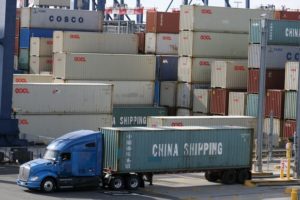Yesterday, the World Health Organization declared COVID-19 a pandemic, as the virus reached more than 130,000 cases worldwide. Last night, President Trump gave an Oval Office address to the nation and announced new restrictions on travel from Europe.
Today it was announced that the SBA is providing disaster loans to small businesses for up to $2 million. Nonprofits can apply as well. As this is a moving story, CAMEO is keeping a list of resources that can help you and your clients.
Earlier this week, the House Committee on Small Business held a hearing titled, “The Impact of Coronavirus on America’s Small Businesses.” The hearing is in response to the fast-moving developments related to the Coronavirus outbreak. First found in China, the virus has reached more than 100 countries including the United States.
Small businesses are the engine of the American economy. But small businesses are also particularly susceptible to unforeseen events such as a global pandemic. At yesterday’s hearing, the Committee heard from economic and health experts, representatives of industry, and the small business community. These witnesses talked about the economic and social impact of the COVID-19 outbreak on small businesses and the economy at large.
Testimony from these witnesses identified both supply-side and demand-side impacts from the outbreak on the small business community. These can be summarized as follows:
Supply-side impacts

COVID-19 originated in China, and efforts to contain the epidemic led to factory shutdowns and strict travel restrictions. According to Dr. Jennifer Huang Buoey, Senior Policy Researcher in China Policy Studies at the RAND Corporation, Chinese exports support 30 to 50 percent of the global supply chain and 80 percent of globally-traded goods pass through Chinese ports. The disruption in the global supply chain is causing severe delays in production and decreased shipping capacity. This has resulted in dramatic revenue losses for companies around the world.
Small businesses in the U.S. that rely on Chinese-produced or transported goods are feeling the impact. “My business uses ingredients from all over the world: tapioca starch from Thailand, tea from Japan, bamboo straws from Taiwan, and packaging from China. Anything that is imported from overseas is delayed a month or indefinitely in cases where factories are shut down entirely,” testified Andrew Chau. Mr Chau is the co-founder and CEO of California-based milk tea chain Boba Guys – a client of Pacific Community Ventures, a CAMEO member.
Demand-side impacts
With the virus spreading outside of China and reaching American shores, fear of infection among the general population is growing. This has caused the demand for various goods and services to slow down dramatically. Some industries have been more impacted than others. Jay Ellenby, President of Safe Harbors Business Travel and member of the American Society of Travel Advisors (ACTA), testified at the hearing on the effects of the outbreak on the travel industry. Business and leisure travel around the world are being stopped or severely limited. Customers fear becoming infected or of being unable to return home due to quarantine measures. Travel agents, airlines, hotels, restaurants, and other businesses that serve the travel industry have either experienced losses or are bracing for impact. According to a survey presented by Mr. Ellenby, 98 percent of ACTA members expect a negative impact on business revenues. Meanwhile, 45 percent expect clients to resume a normal travel schedule within three-to-six months.

Outside of the travel industry, small businesses will see a reduced clientele in areas heavily impacted by an outbreak. As of March 12, nineteen U.S. states including California have declared a state of emergency. They have put in place various prevention measures that are sure to ramp up if infection rates continue to increase. Some areas may institute quarantines and social distancing measures, encouraging the population to stay home and avoid large gatherings. Demand for non-essential goods and services will be drastically reduced.
Another unforeseen impact has been a result of misinformation and xenophobia against Asian American and Pacific Islander communities. Given the virus’ origins in Asia and the resulting sensationalist media coverage, “Chinatowns and other AAPI enclaves across America are experiencing a drastic decline in patronage,” according to Mr. Chau. “A recent NY Times article said that business is down as much as 70% due to the coronavirus COVID-19.”
Why small businesses suffer more
The economic impact of COVID-19 is being felt by businesses of all sizes. However, small and micro enterprises are less equipped than large corporations to deal with a crisis of this magnitude. Small businesses operate with tight profit margins. This means they are less likely to have enough cash flow to get them through a long-term economic downturn. Fifty-one percent of ACTA survey respondents reported being at risk of going out of business within three to six months given current cash reserves. Small businesses also have a leaner workforce. The loss of one staff member or two due to illness can severely hinder their ability to operate. In turn, revenue losses will also affect these businesses’ ability to pay employee salaries and sick leave. Many of them will be forced to lay off staff.
Actions are needed now
The recently-enacted Coronavirus Preparedness and Response Supplemental Appropriations Act of 2020 includes funding that will enable SBA to provide an estimated $7 billion in loans to alleviate the impact of COVID-19 on small businesses. Witnesses at the hearing lauded this initiative and provided the Committee with a series of recommendations to further help small businesses. Some of these are:
- Emergency funding programs, lower interest rates, deferred or waived taxes and fees, and loosened lending requirements for small businesses
- Tax breaks and technical guidance to diversify business platforms and increase online capabilities
- A hotline or website for small businesses to consult information on the epidemic as well as prevention measures and resources
- Additional funding for unemployment insurance payments to help support laid-off employees
- Tax relief to stimulate affected industries
- A comprehensive approach to paid leave to protect workers and businesses
As the virus continues to spread across the country, the situation is rapidly changing. We will continue to monitor every development and share resources for our members and their clients to address the challenges ahead. In that vein, Small Business Majority has put out a Coronavirus Preparedness Survey for small business owners. Please share the survey with your clients and colleagues.
